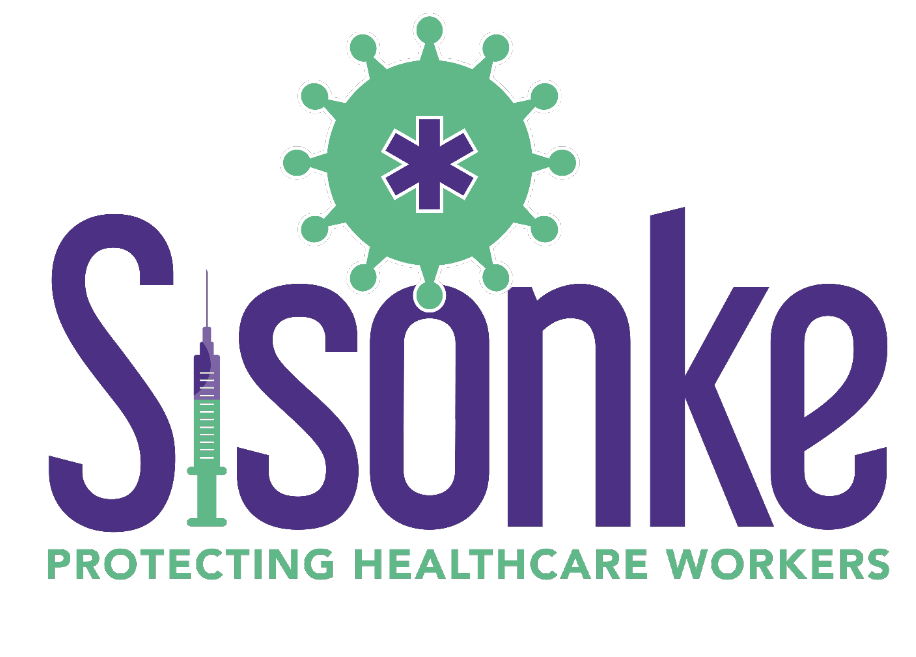Update on Sisonke Phase 3b study pause and response to queries regarding antibody testing post vaccination
 Cape Town | The Sisonke investigators are working to implement the conditions requested by the South African Health Products Regulatory Authority (SAHPRA) in response to the six reports of an extremely rare clotting syndrome following administration of 7 million doses of the JnJ vaccine in the United States (US). These include changes to the protocol, SMS communications with unvaccinated health workers who have vouchers, updating standard operating procedures, and training to support the appropriate screening and management of this condition, and communication with the public. We hope to resume vaccination within a couple of days and thank health workers for their continued patience.
Cape Town | The Sisonke investigators are working to implement the conditions requested by the South African Health Products Regulatory Authority (SAHPRA) in response to the six reports of an extremely rare clotting syndrome following administration of 7 million doses of the JnJ vaccine in the United States (US). These include changes to the protocol, SMS communications with unvaccinated health workers who have vouchers, updating standard operating procedures, and training to support the appropriate screening and management of this condition, and communication with the public. We hope to resume vaccination within a couple of days and thank health workers for their continued patience.
Antibody testing post vaccination: We have received numerous enquiries from anxious health workers who have checked their antibody titres at private laboratories several weeks after vaccination and are concerned that results have been returned negative with prompts suggesting “vaccine failure” and recommending repeat testing. We have consulted with pathologists at the National Health Laboratory Service and explain why this is no cause for alarm and why we do not advise antibody testing post vaccination.
The JnJ vaccine is based on the SARS-CoV-2 spike protein. The vaccine triggers two arms of the immune response - antibodies and T cells. Both protect you from COVID-19. Although many types of antibodies are triggered, only some of these antibodies, called neutralizing antibodies, protect you from infection. The routinely requested antibody tests do not measure neutralising antibody responses or the specific spike antigens contained in the vaccines.
Should you choose to go for an antibody test, you should note that:
- Most commercially available antibody tests detect responses to the nucleocapsid protein. This is a different viral protein to the spike and is NOT part of the vaccine. Therefore, people who received the vaccine will not have antibodies to this protein and their tests will come back negative. This does NOT mean that you failed to mount an immune response to the vaccine. Further, we currently caution against tests that claim to measure both the S (Spike) and Nucleocapsid (N) proteins.
- Although the trials showed that 96 – 100% of people who receive the vaccine will develop antibodies, these take time to develop. Antibodies start to rise as early as day 14 and continue to rise at from days 29 through day 57 with no significant waning (decrease) by day 85. Hence antibody tests, even if recommended as suitable for detecting vaccine-induced antibodies, performed too early may come back as negative.
- Some diagnostic tests designed to measure spike antibodies may not be sensitive enough to detect vaccine responses, especially soon after you received the vaccine. However, even low levels of antibodies will help combat COVID-19 and are complemented by cell-mediated immunity which is not tested outside of limited clinical studies.
- Commercial antibody tests do not measure the neutralizing effect of antibodies which is the most important aspect of the antibody responses for protection. In the trials a single dose of JnJ elicited a SARS-CoV-2 neutralizing antibody response as measured in a wild type SARS-CoV-2 neutralization assay by Day 29 (28 days post dose 1) in 96% of participants aged 18-55 years and in 100% and 96% of participants over 65 years by Day 15 and Day 29, respectively. Neutralizing antibody levels were maintained in participants aged 18-55 years up to at least Day 85, and up to at least Day 87 for participants over 65 years.
- Existing diagnostic tests also do not measure T cells, which are different to antibodies, but likely provide important protection to people who received the vaccine.
A negative antibody test after vaccination should therefore be interpreted with caution and we are NOT advising repeat testing nor vaccination at this time. Clinical efficacy is the most important indicator, and the trial data shows that the vaccine provides 82% protection against severe disease. The level of protection provided under real world conditions and at scale is at the heart of the Sisonke Phase 3 B trial. We encourage health workers who have been vaccinated to continue to practise non-pharmacological interventions, and to seek early testing for COVID-19 (through PCR or rapid antigen tests) should they develop any COVID-19 symptoms. Health workers who test positive for COVID-19 on PCR or a rapid antigen test are urged to contact the Sisonke Desk on 0800 014 956 so that we can provide you with assistance.
NOTE TO THE EDITOR:
About the Sisonke Study:
The Sisonke study is a collaboration between the National Department of Health, South African Medical Research Council, Desmond Tutu Health Foundation, CAPRISA, Janssen and Johnson & Johnson. This open label, single-arm Phase 3b vaccine clinical trial of the investigational single-dose Janssen COVID-19 vaccine candidate aims to monitor the effectiveness of the investigational single-dose Janssen vaccine candidate at preventing severe COVID-19, hospitalizations and deaths among healthcare workers as compared to the general unvaccinated population in South Africa.

